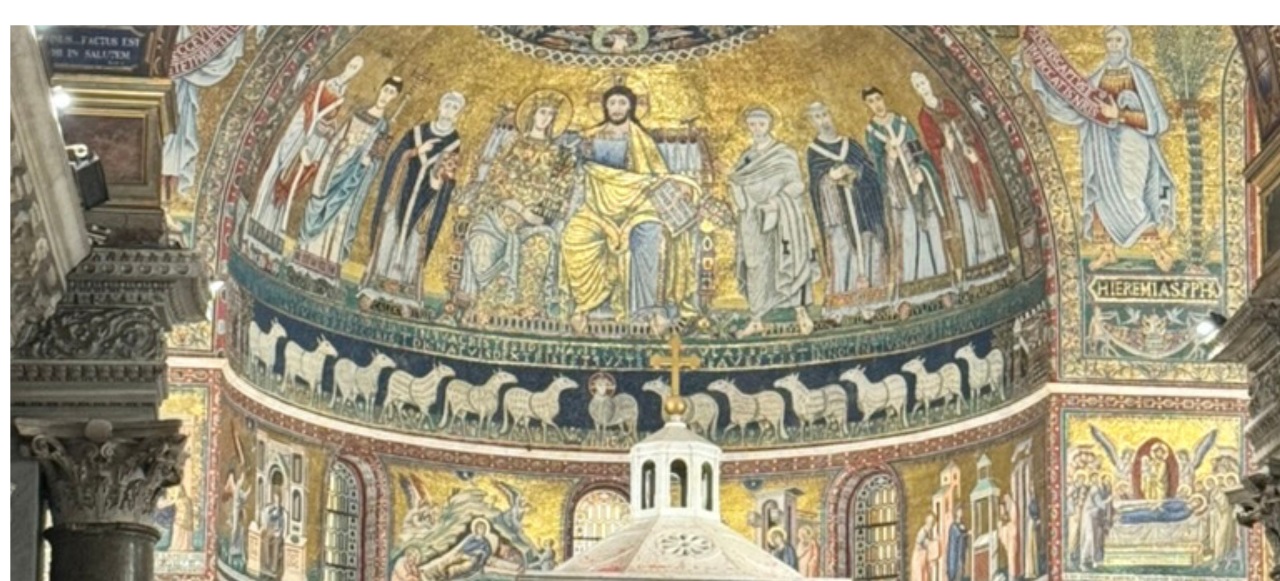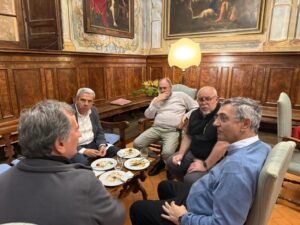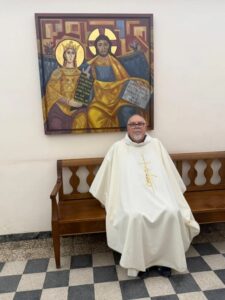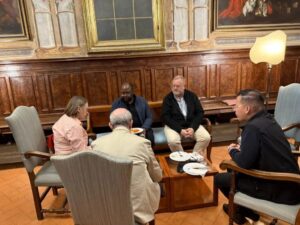We and the “Sant’Egidio Community”
On Saturday, May 24, all the members of the Central Government were invited by the Sant’Egidio Association in Rome to join them for Sunday evening Mass. Every week, their community gathers in the beautiful church of Santa Maria in Trastevere, a truly special place where they come together and live out Gospel fellowship.
Celebrating the Lord’s Day with these brothers and sisters was, for us Oblates, a moment of deep faith and an unexpected gift.
It truly was an unforgettable Eucharist. You could sense, almost tangibly, that “fraternal unity” as a gift of peace from the Risen Christ, just as the Gospel of John describes. This Mass allowed us to feel God, his presence, and his love for us and for everyone. I am convinced that this did not come from the number of people or priests present, nor from the beautifully prepared songs by a small choir. Rather, it was the genuine experience of “fraternal communion,” grounded in faith in the Risen Christ, that shone through and carried the prayer of the entire assembly. This was not a Eucharist celebrated by “anonymous believers.” It was celebrated by men and women of all ages and backgrounds who, knowing that we belong to one another in Christ, “welcomed together” the value of the Word of God, allowed ourselves to “be evangelized together,” and in turn, “became together witnesses” to the message of the Gospel.
Anyone familiar with the history of the Community of Sant’Egidio knows that its members are defined by their commitment to works of charity and by always standing close to the poor. They reach out to people experiencing homelessness, migrants in vulnerable situations, elderly people who are alone or forgotten, and anyone facing social or economic exclusion. The Association is also widely recognized for its ongoing work to promote peace in countries scarred by war and division.
Still, it’s important not to forget that, since its founding in 1968, the Community’s main purpose has always been prayer. Prayer shapes the heart in the spirit of Christ’s charity. It makes us more human, capable of stepping into another’s shoes, especially those who suffer the most.
This points to something essential, even if it’s not a strict rule, about Christian life or any group that seeks to live the Gospel authentically: prayer comes first, then action. Spiritual life comes first, and it is the root of works of charity and social commitment. We know this well: there are no genuine works of charity without communion with God, and no authentic mission unless we allow God’s love to shape us first. That kind of love is only received through a contemplative life and by listening to the Word of God.
In other words, to use Pope Francis’s language, there can be no real love for the poor and those society throws away unless we immerse ourselves in the mystery of the Eucharist, where we remember the One who was crucified and who loved everyone to the very end.
This is exactly what Saint Eugene, the blessed Oblates, and so many other brothers have taught us. Many of them are not well known, but they have lived this out with dedication and authenticity.
By Alberto Gnemmi, OMI – General Counselor for Europe
Published on the OMI World website





